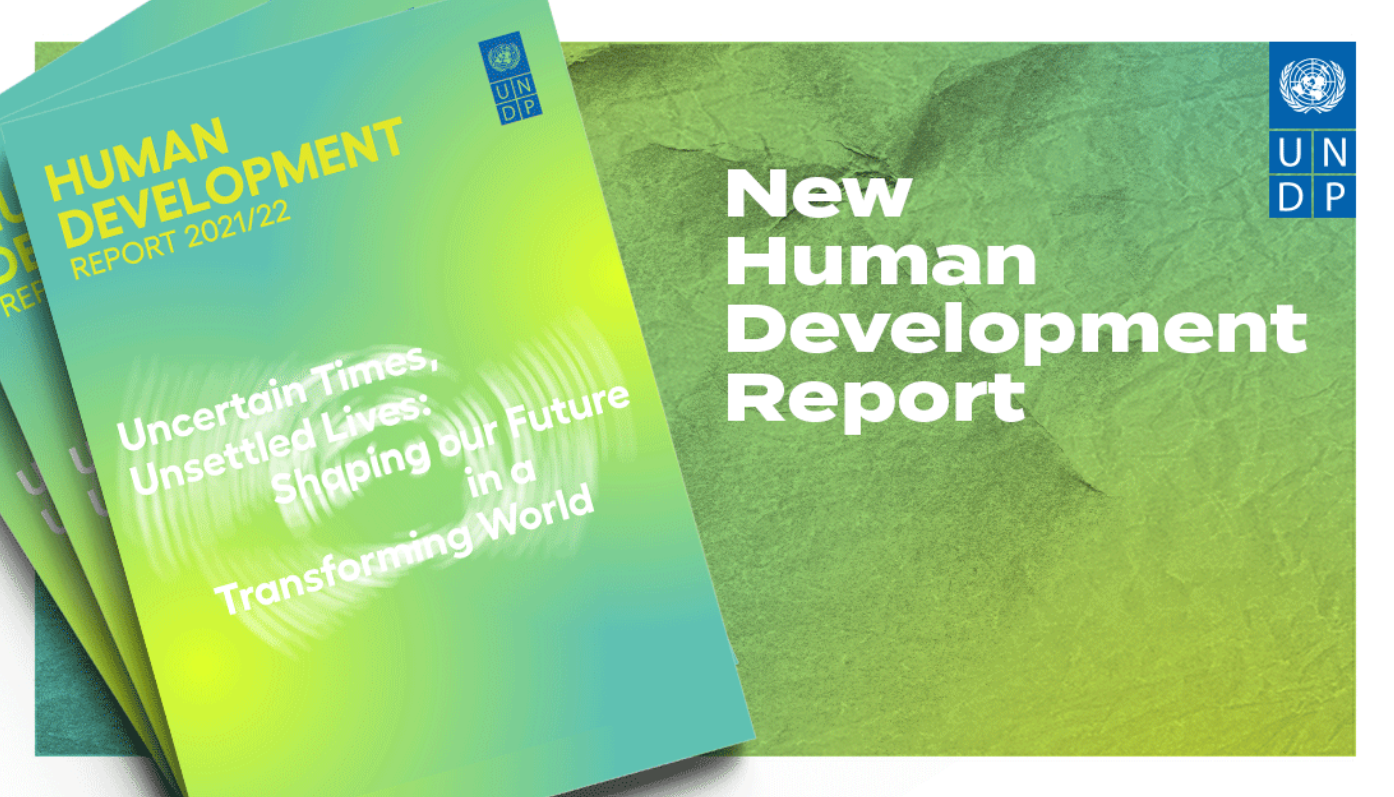According to the Human Development Index for 2021, Serbia is in the group of highly developed countries
Multiple crises halt progress as 9 out of 10 countries fall backwards in human development, UNDP report warns
September 8, 2022

8 September 2022 – New York – According to the UNDP's latest Human Development Report 2021/2022, Serbia's Human Development Index for 2021 is 0.802, which ranks it 63rd on the list 191 countries and territories included in the report, and in the category of very highly developed countries. This is an improvement of one place compared to the previous Report.
At the top of the list, as the country with the highest Human Development Index, is Switzerland, followed by Norway, Iceland, Hong Kong and Australia.
The Human Development Index (HDI) measures average long-term progress in three basic dimensions of societal development: longevity, education and per capita income. According to this parameter, countries are ranked in several categories - from those with low to those with very high human development.
Of the countries surrounding Serbia, the best placed is Slovenia, which is in 23rd place, while the highly developed countries also include Croatia (40), Montenegro (49), Hungary (46) and Romania (53). A category lower, among the highly developed countries are Albania (67), Bulgaria (68), Bosnia and Herzegovina (74) and North Macedonia (78).
According to the latest Human Development Report, the life expectancy in Serbia is 74.2 years, which means that it is almost two years shorter than the estimates of the Human Development Report for 2019, when it was 76 years. Male and female citizens of Serbia completed an average of 11.4 years of schooling, while the younger generation expects an average of 14.4 years of schooling.
Serbia has an excellent result when it comes to the Gender Development Index, which measures the disparity in HDI values by gender. The closer the ratio between HDI values for women and men is to 1, the smaller the gap between the sexes, and the value of the Gender Development Index for Serbia is 1.
Without a sharp change of course, we may be heading towards even more deprivations and injustices, warns the UNDP.
The world is lurching from crisis to crisis, trapped in a cycle of firefighting and unable to tackle the roots of the troubles that confront us.
The latest Human Development Report, “Uncertain Times, Unsettled Lives: Shaping our Future in a Transforming World” launched today by UNDP and covering 2020 and 2021, argues that layers of uncertainty are stacking up and interacting to unsettle life in unprecedented ways. The last two years have had a devastating impact for billions of people around the world, when crises like COVID-19 and the war in Ukraine hit back-to-back, and interacted with sweeping social and economic shifts, dangerous planetary changes, and massive increases in polarization.
For the first time in the 32 years that UNDP have been calculating it, the Human Development Index, which measures a nation’s health, education, and standard of living, has declined globally for two years in a row. Human development has fallen back to its 2016 levels, reversing much of the progress towards the Sustainable Development Goals.
The reversal is nearly universal as over 90 percent of countries registered a decline in their HDI score in either 2020 or 2021 and more than 40 percent declined in both years, signaling that the crisis is still deepening for many.
While some countries are beginning to get back on their feet, recovery is uneven and partial, further widening inequalities in human development. Latin America, the Caribbean, Sub-Saharan Africa and South Asia have been hit particularly hard.
“The world is scrambling to respond to back-to-back crises. We have seen with the cost of living and energy crises that, while it is tempting to focus on quick fixes like subsidizing fossil fuels, immediate relief tactics are delaying the long-term systemic changes we must make,” says Achim Steiner, UNDP Administrator. “We are collectively paralyzed in making these changes. In a world defined by uncertainty, we need a renewed sense of global solidarity to tackle our interconnected, common challenges.”
The report explores why the change needed isn’t happening and suggests there are many reasons, including how insecurity and polarization are feeding off each other today to prevent the solidarity and collective action we need to tackle crises at all levels. New calculations show, for instance, that those feeling most insecure are also more likely to hold extreme political views.
To chart a new course, the report recommends implementing policies that focus on investment — from renewable energy to preparedness for pandemics, and insurance—including social protection— to prepare our societies for the ups and downs of an uncertain world. While innovation in its many forms— technological, economic, cultural—can also build capacities to respond to whatever challenges come next.
“To navigate uncertainty, we need to double down on human development and look beyond improving people’s wealth or health,” says UNDP’s Pedro Conceição, the report’s lead author. “These remain important. But we also need to protect the planet and provide people with the tools they need to feel more secure, regain a sense of control over their lives and have hope for the future.”

 Locations
Locations